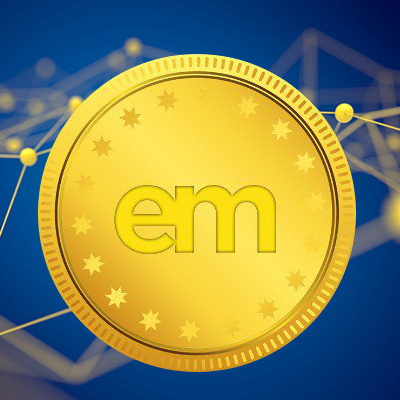What’s Up with Dubai’s Crypto scenario?
Irrespective of where it was developed, if there is any piece of technology that UAE is interested in, chances are that the Emirati government is already in talks with the developer to buy and implement it across the country – that is how crazy UAE is when it comes to adopting new technologies. UAE has seen computers, smartphones, mobile apps, tablets, and all that stuff right at the dawn of the day. But the newest kid in the technology block is cryptocurrency, and I am not sure if ‘kid’ would be the right word to describe something as promising as blockchain technology. And as usual, the Emirates have duly acknowledged the potential of blockchain, and have taken some big steps in that direction. In this article, we will see why Dubai is ahead of the curve in terms of technology adoption from the perspective of blockchain technology and gain some awareness on how exactly Dubai has responded to the blockchain revolution:
Dedicated payment system across Dubai for blockchain transactions:
The thing about blockchain technology is that its implementation can be considered successful only if it is accepted widely and is used by a huge number of users. The reason why Bitcoin took time to show its true potential is that it was still in the process of gaining users. Now, in case of a city building a closed blockchain system to be used within its boundaries, it is imperative that a large number of users participate in the same.
To facilitate the use of blockchain around Dubai (and across entire UAE in later stages), Smart Dubai Office joined hands with Avanza, a FinTech startup, to build a closed blockchain system for payments and remittances. However, the core purpose of taking such step is to allow citizens to pay with cryptocurrencies at any point of sale. The program was launched, in collaboration with NBD Bank and Dubai Smart Government initiative, last year, to prepare the city for cryptocurrency-powered economy framework, if the government chooses to develop any of its own, in future.
According to the sources involved directly in the development of such network, more than 30 government entities and other offices will work in sync with the cryptocurrency economy framework and will have Ethereum smart contracts at the core.

EmCash – Dubai’s first official cryptocurrency
About 6 months from the announcement to develop its own cryptocurrency system across Dubai for payments and remittances, UAE discussed its plan to develop its own cryptocurrency, which is going to be known as emCash. EmCash is UAE’s reply to the world that is sceptical about using blockchain technology to its full potential. Unlike others UAE too realised the risks involved in blockchain technology, but it came up with the idea of creating its own for better control and governance.
Developed hand in hand with Emcredit, a subsidiary of Dubai’s economic affairs ministry, and Object Tech, a UK-based blockchain startup, emCash is going to be a decentralized blockchain service governed by Dubai government. In a move to eliminate dependency on cash, and store transactional information on a permanent, tamper-proof basis, emCash blockchain will be powered by emPay wallet app, which is going to be fully compatible with all smartphone platforms. The feature of emPay that will bring utmost convenience to the citizens of Dubai is its ability to make micropayments, bills payment, and remittances with the help of Near Field Communication (NFC). Other than the NFC, users can always use the general method of transferring i.e via blockchain address.
License to Crypto
Dubai is quite open to experience new technologies and conveniences for the obvious reason that the nation is affluent enough to take the risk. In Feb 2018, Dubai Multi Commodities Centre (DMCC) gave out the first license to trade cryptocurrencies in the region, to Regal Assets, an international gold trader based in Dubai, and formed Regal RA DMCC.
As per DMCC, Regal RA DMCC will offer cryptocurrency investment opportunities to investors and also allow them to store their cryptocurrencies. One of the unique features of Regal RA DMCC is that it is the only cryptocurrency exchange and storage solution that guarantees 100% insurance in event of a technical glitch or hack resulting in loss of investors’ money. However, for now RA DMCC trades only few, most popular cryptocurrencies like Bitcoin, Ethereum, Ripple, Litecoin, Bitcoin Cash, Ethereum Classic, and Monero.

Grappling with the issues
Love it, hate it, but you can’t ignore it. And if you can’t ignore it, it means you are working with it, at the least. This is what UAE’s perception about blockchain technology is. From its recent activities regarding cryptocurrencies, UAE is certainly not planning to oust cryptocurrencies from its boundaries. However, it doesn’t mean the Emirates leaders are not aware of the risks involved in ungoverned trading of cryptocurrencies in a region. With that in mind, Financial Services Regulatory Authority (FSRA), the market regulator in Abu Dhabi, is en route framing a protocol-infused governance framework to regulate and watch over the cryptocurrency trade activities in the region. The step has been taken in the wake of world’s concern over illegal trading, terrorist funding and other transactions that are not very transparent on blockchain platforms.
Apart from this, another move that came in from the banks in UAE is the banning of cryptocurrency purchase with credit cards. What is noteworthy about this move from the banks is that the banks did not completely ban cryptocurrencies from being traded in the region, showing their support for cryptocurrency trade in the region. However, what made some of the major banks like JP Morgan Chase and Citi Group ban buying of cryptocurrencies with credit cards is because of the high latency and high volatility in the prices of cryptocurrencies, due to which borrowers had tough time paying back the amount they loaned, due to frequent rise and falls in the value of cryptocurrencies. Among all the cryptocurrencies, Bitcoin has played a major role in compelling the banks to come to this decision.

